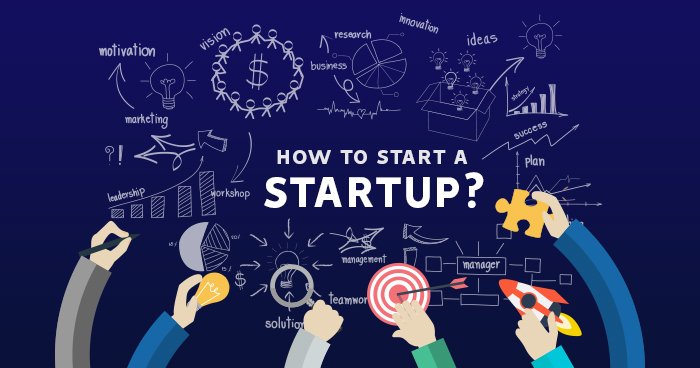Every successful startup needs more than just a great product — it needs a reliable way to attract, nurture, and convert leads into paying customers. That’s where your marketing funnel comes in. A well-built funnel guides prospects step-by-step from awareness to decision while combining content, branding, and Startup SEO to drive consistent growth.
When done right, your funnel becomes the heartbeat of your business — a repeatable system that turns curiosity into conversion.
Understanding the Marketing Funnel
A marketing funnel visualizes your customer’s journey from the first time they hear about your startup to the moment they buy (and beyond). Typically, it has three main stages:
-
Top of Funnel (Awareness): People are discovering your brand for the first time.
-
Middle of Funnel (Consideration): They’re comparing options and researching solutions.
-
Bottom of Funnel (Conversion): They’re ready to take action — purchase, subscribe, or book a call.
Each stage requires different types of content and messaging. The goal is to make sure prospects always have a clear next step.
The Role of SEO in the Funnel
SEO isn’t just about rankings — it’s about visibility at every stage of your funnel. By using SEO for startups, you can attract high-intent visitors right when they’re looking for what you offer.
At the top of the funnel, keyword-optimized blog posts and guides help people discover your brand. In the middle, case studies, comparisons, and landing pages help them evaluate. And at the bottom, optimized service pages and testimonials close the deal.
Every piece of content you create should align with a specific stage and keyword intent. This ensures your audience always finds relevant, helpful information — and builds trust before they ever speak to you.
Stage 1: Awareness
At this stage, your potential customers might not even know they need your product yet. Your job is to educate and inspire curiosity.
Create content that solves problems or answers questions your audience is already searching for. Think “how-to” guides, beginner tutorials, and industry insights.
For example:
-
“How SEO Helps Startups Scale Faster”
-
“Top 10 Growth Challenges New Founders Face”
These articles should target broad, informational keywords. The goal isn’t to sell but to attract — to get people onto your website and aware of your brand.
Social media, PR, and guest posts also play a major role here. The more visibility you generate, the more opportunities for backlinks and traffic — two crucial benefits for Startup SEO services.
Stage 2: Consideration
Once visitors know who you are, they’ll start comparing you with other options. This is where you prove your value.
Create middle-of-funnel content like:
-
In-depth guides explaining how your service works.
-
Comparison pages (e.g., “Startup SEO vs Paid Ads”).
-
Case studies showing measurable results.
-
FAQs addressing common objections.
At this stage, clarity and trust matter more than hype. Use storytelling and data to demonstrate expertise and credibility.
This is also where branding becomes vital. Consistent visuals, tone, and messaging make your startup memorable — and reinforce the confidence you built earlier in the funnel.
Stage 3: Conversion
This is where interest turns into action. You’ve earned attention and trust — now it’s time to make it easy for prospects to commit.
Your bottom-of-funnel assets should include:
-
Conversion-focused landing pages.
-
Customer testimonials and reviews.
-
Demo booking or contact forms.
-
Strong calls to action (“Start Your Free Consultation,” “Get a Custom SEO Plan”).
Make sure your pages are fast, mobile-friendly, and optimized for relevant transactional keywords like “hire a Startup SEO agency” or “best SEO company for startups.”
Even small improvements in page design or copy can dramatically increase conversion rates.
Don’t Forget Retention
Many startups stop at the sale, but retention is where profitability lives. Returning customers are easier and cheaper to convert than new ones.
Use email marketing, retargeting ads, and social media engagement to stay connected. Offer value after the sale — updates, tips, or loyalty programs.
Keeping your customers engaged builds lifetime value and encourages referrals, which strengthens your brand and SEO through natural mentions and backlinks.
Aligning SEO and Funnel Content
To maximize results, align your content strategy with your funnel structure. For example:
-
Awareness keywords: “what is startup SEO,” “how to grow a startup online.”
-
Consideration keywords: “best SEO strategy for startups,” “affordable SEO for new companies.”
-
Conversion keywords: “hire startup SEO expert,” “startup SEO company near me.”
A well-rounded keyword mix ensures you’re capturing traffic at every stage of intent — from learning to buying.
Your Startup SEO company can map out these keywords and assign them to specific pages so nothing overlaps or competes. Over time, this builds a full ecosystem of interlinked content that ranks together and feeds your funnel automatically.
Measuring Funnel Performance
Data turns your funnel from a theory into a growth engine. Use analytics to track:
-
Traffic by stage (awareness, consideration, conversion).
-
Bounce rate and dwell time on each page.
-
Conversion rates from organic visitors.
-
Lead sources (which keywords or posts drive the most sign-ups).
If you notice one stage underperforming, optimize it. For instance, if awareness is strong but conversions are weak, improve your CTAs or landing page design.
Working with Startup SEO services can make this process seamless, as they’ll monitor keyword performance and adjust your funnel dynamically.
Common Funnel Mistakes to Avoid
-
Skipping awareness content: People can’t buy from you if they don’t know you exist.
-
Overloading with sales language too early: Educate first, sell later.
-
Not connecting your pages: Each stage should link logically to the next.
-
Neglecting design and UX: A confusing or slow site breaks the conversion flow.
Avoiding these mistakes helps your funnel feel natural — not forced.
Final Thoughts
A startup’s marketing funnel isn’t just about generating sales. It’s about building relationships, trust, and authority at scale.
By combining clear messaging, engaging content, and powerful SEO for startup companies, you’ll attract the right visitors, guide them through the journey, and turn them into loyal customers.
Remember: a great product gets attention. A great funnel turns that attention into growth.
Invest in your funnel now, and you’ll create a system that keeps converting long after the initial launch buzz fades — one that scales with your business, powered by strategy, trust, and visibility.

